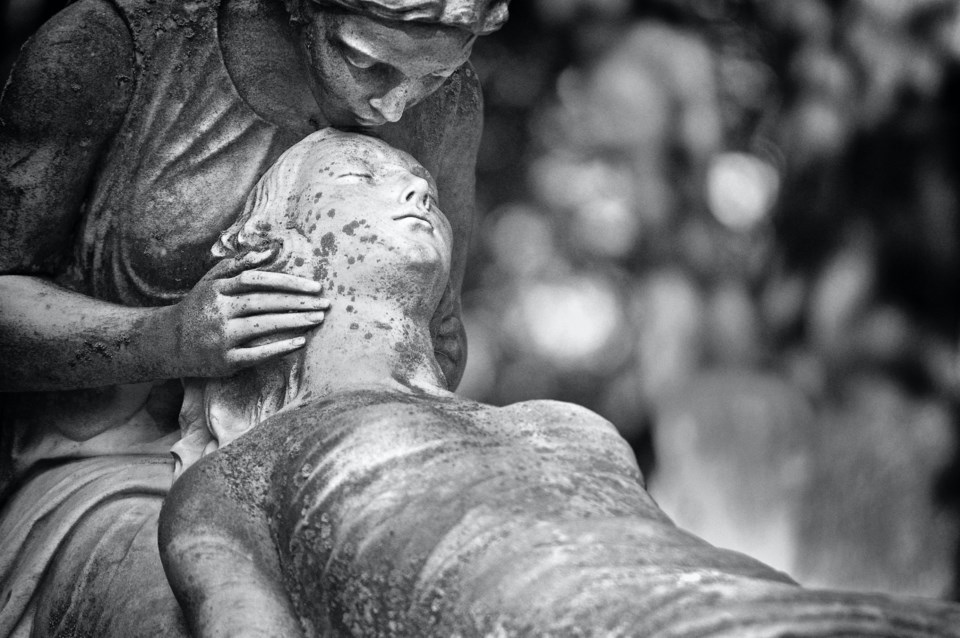Who cares for the caregivers?
Many people who are caring for bed ridden, disabled, or dying patients at home, run themselves ragged in the process by trying to do everything themselves. They are tired out, anxious, worried and under pressure. They too need help.
Recently I heard of a new group in Kitchener that’s training groups of friends in how to care for carers looking after patients at home.
This is a great concept but certainly not a new idea.
The late June Callwood, author of Twelve Weeks in Spring wrote the inspiring story of a group of people who came together to help a friend battling cancer, and thereby discovered their own unexpected strength and humanity.
In February 1985, 68-year-old Margaret Frazer was told by her doctor she had terminal cancer. A retired, single woman, whose family was far away, who faced a situation all too familiar in our society — a lonely death in a sterile hospital.
Margaret's lifetime of giving to others was repaid, however, when many of the people she had touched made a remarkable choice. Most of these people were strangers to each other, and some even to Margaret.
The Friends of Margaret developed into a smoothly functioning hospice team that cared for Margaret in the comfort of her own home. Telling the story of a group from the congregation of the Holy Trinity Church, in downtown Toronto, who came together to care for a dying patient who lived alone.
June, a member of the group, wrote about the members of her palliative care team in detail. It was a loving story, and many have used it as inspiration to organize their own palliative care teams.
I used their example when my late husband Stuart was in his last months.
Stuart, who in his 76 years had never been in hospital overnight, wished to stay at home and I hoped to give him that gift.
A request was sent out to friends advising them to think carefully before answering as it could be a difficult and emotional request to uphold as Stuart’s illness progressed.
They were asked if once a week they might volunteer to spend two to three hours as one of “Stuart’s Pals” (shortened for palliative care). Hoping for maybe a dozen to reply, a wide variety responded, and thirty-five answered positively.
That meant planning, training, and organizing a schedule. Once done it worked well, initially allowing me a break from the 24/7 required. I could grocery shop, go for a walk, have a coffee with a friend; a much-needed and appreciated break.
After several weeks, as Stuart weakened and his needs increased, some volunteers asked to be excused. It was too emotional for them and they were smart enough to recognize the toll.
Others expected to be entertained by Stuart, which exhausted him. That meant we had to revise the list as diplomatically as possible, cutting the numbers down to those he felt most comfortable with.
We had a daily notebook for his “Pals” to report on their time and activities, which occurred during their shift.
It was helpful to all volunteers and to me. Eventually it was supplemented by various medical and social services who visited regularly.
Some Pals would bring their dogs, one family played a small concert, others baked or did laundry, and some just sat quietly.
Valerie Hill, a caring reporter with The Record, asked if she could write his life story.
Each week she would ask a question or two, mindful of his energy level, and just before he died, she gifted him a small book to pass to his sons.
It was a diverse and loving group, a wonderfully uplifting team. We laughed, hugged, cried and all learned and shared.
When I heard of this new group now being formed in Kitchener, I was delighted; such a great concept that could be implemented for many families struggling with worn out caregivers.
As caregivers we find it difficult to accept help, thinking we should be able do it all, but to accept help benefits all involved.
That attitude of do it all yourself does not take into consideration how much friends wish to help. People naturally want to help, want to be kind, but often don’t know how to begin. Once given specific tasks they are comfortable knowing how to best spend their volunteer hours.
This process offers such friends the opportunity to generously give their love and time. It also raises the self- esteem of the patient knowing they have friends who care.
To me it is one of the most valuable gifts we can ever offer anyone. My hope is that the new group will spread the word and many such groups will blossom.
A wonderful way to ease the burden of the care givers. It is a very reciprocal opportunity, its a great feeling of learning and sharing, and teaches the volunteers about the value of life.
The patient is relieved their caregiver has help. Everyone benefits and is more comfortable.
There is no greater gift we can offer than to care for those in need and support their caregivers.
To those of you who are caring for others over a long time, please consider allowing friends and family to help.
Give them specific directions as to what would most help you, because it also helps them.
Doing your laundry, shopping, cooking meals, running a few errands, maybe just sitting with your patient and reading to them, anything that eases things for you and allows you time to yourself for an hour or two.
You will help them as much as they help you. Everyone benefits. The greatest gift we can give one another is sharing our love and compassion in a time of need.



